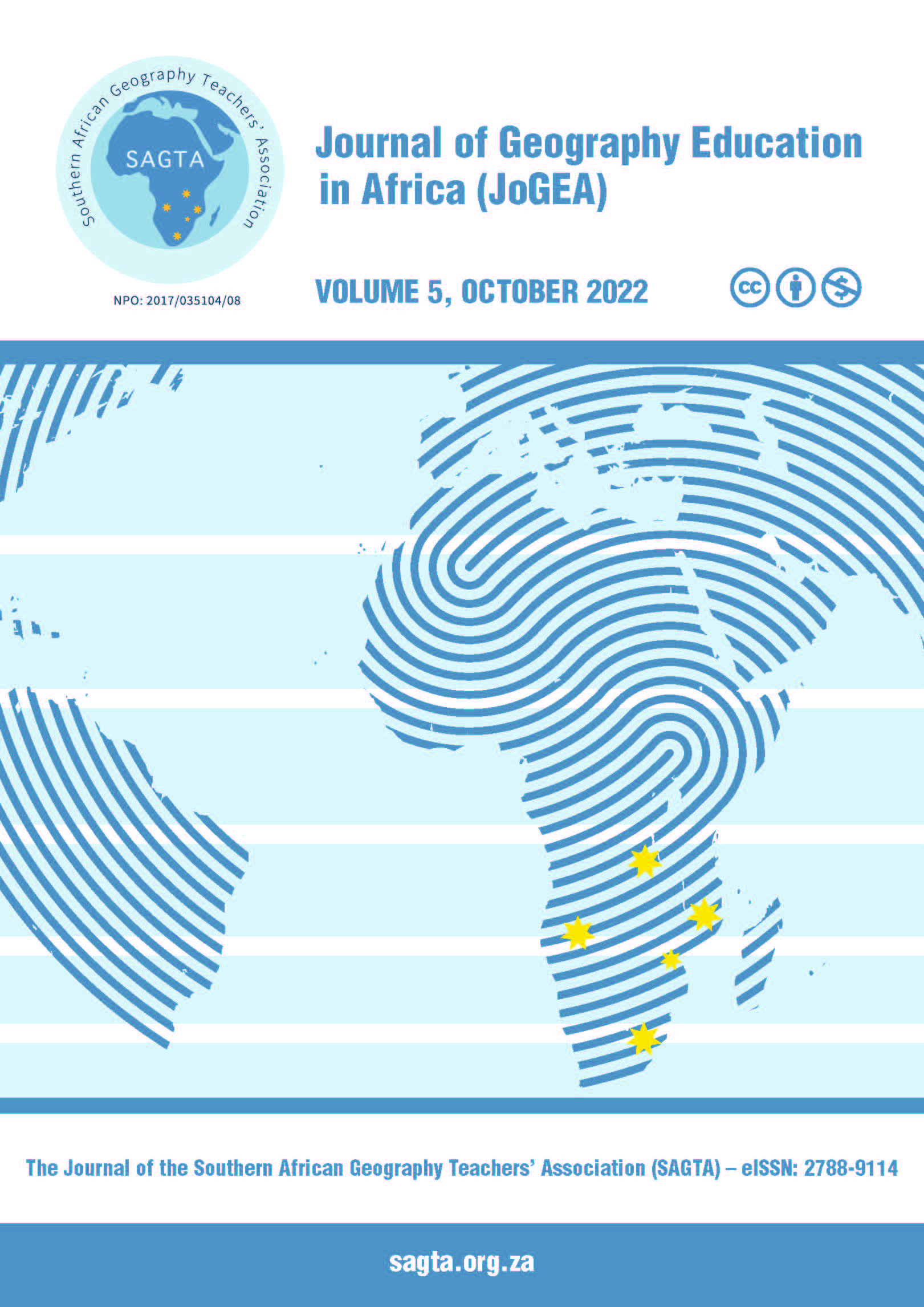Namibian secondary-level school learners’ lived experiences of Physical Geography
DOI:
https://doi.org/10.46622/jogea.v5i1.3785Keywords:
Geography education, everyday Geography, lived experiences, interpretative phenomenological analysisAbstract
In Namibian schools, structured and organised outdoor learning opportunities are not accessible to everyone or equally distributed. All Namibian learners do, however, have access to lived experiences outside of school and are exposed to different everyday environments. Learners’ lived experiences are not always recognised by teachers as a potential and relevant geographical resource for teaching and learning. The aim of this research was to analyse the reported geographical lived experiences of secondary school learners from Namibia to establish the role of their lived experiences in the acquisition of geographical consciousness. In total, 28 Grade 11 learners from five Namibian government secondary schools in Otavi, Rundu, Keetmanshoop, Walvis Bay and Windhoek were involved in the research. Attention was paid to whether and how exposure to lived experiences led to the visualisation and awareness of geographical place, space, concepts, and processes. The findings revealed that each participant’s lived experiences and the interpretations of their lived experiences are unique.
Downloads
Published
Issue
Section
License
Copyright (c) 2022 Tiani Wepener

This work is licensed under a Creative Commons Attribution-NonCommercial-ShareAlike 4.0 International License.


